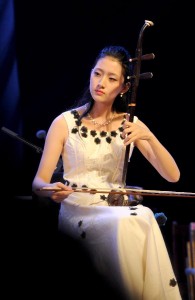This entry will explore daily activities within our Utopia such as education, work, and related core values.
Education
 We recognize that a hallmark of Chinese philosophy is the emphasis on the importance of education and learning, xue – 學- . A famous Chinese idiom says, “Mencius’s mother, three moves” – 孟母三遷 -. It serves as a representation for our understanding of the human condition and how we can best adapt to, as well as facilitate its full potential. Mencius’ mother, the legend tells, moved three times before settling down with her son. Only at the final location did she deem the surrounding environment fitting for raising a child. Mencius, a late follower and scholar of The Master Confucius’ teachings, went on to postulate the importance of ones vicinity, and its impact on our moral and intellectual character. Human nature, Mencius believed, had an innate tendency toward goodness fixed in our xin – 心 -, or heart-mind (Xin is an ancient Chinese philosophical concept which locates our cognition in the physical heart. This is similar to what was believed in Ancient Greece as well). An interesting anecdote here is to briefly illuminate the stark contrast between followers of Confucius.
We recognize that a hallmark of Chinese philosophy is the emphasis on the importance of education and learning, xue – 學- . A famous Chinese idiom says, “Mencius’s mother, three moves” – 孟母三遷 -. It serves as a representation for our understanding of the human condition and how we can best adapt to, as well as facilitate its full potential. Mencius’ mother, the legend tells, moved three times before settling down with her son. Only at the final location did she deem the surrounding environment fitting for raising a child. Mencius, a late follower and scholar of The Master Confucius’ teachings, went on to postulate the importance of ones vicinity, and its impact on our moral and intellectual character. Human nature, Mencius believed, had an innate tendency toward goodness fixed in our xin – 心 -, or heart-mind (Xin is an ancient Chinese philosophical concept which locates our cognition in the physical heart. This is similar to what was believed in Ancient Greece as well). An interesting anecdote here is to briefly illuminate the stark contrast between followers of Confucius.
“Mengzi says: When people engage in learning, this manifests the goodness of their nature. I say: This is not so. This is a case of not attaining knowledge of people’s nature and of not inspecting clearly the division between people’s nature and their deliberate efforts. In every case, the nature of a thing is the accomplishment of Heaven. It cannot be learned. It cannot be worked at. Ritual and the standards of righteousness are what the sage produces. They are things that people become capable of through learning, things that are achieved through working at them.” (Ch. 23)
As is clear from this quote, on the one hand, we have the mentioned Mencius and his belief in the innate goodness of man; on the other, we have Xunzi, who believed that it was innately bad. The mind, he said, the mind is indeed a tool, but does not contain anything in virtue of itself. However, Mencius argued, recognition of this tendency of goodness cannot alone account for the flourishing of the four virtues benevolence, righteousness, wisdom, and propriety. Therefore, education, in a wide sense, must facilitate

Mencius regarded the four virtues as growing from these predispositions in the way that a plant grows from a sprout.
it in order for the individual and society to fully flourish. In short, to act as a shepard for the crowd. In response to this, education will play a principle role in our Utopia. A free and general education will be provided to each child from a young age. In the Analects, Confucius admirably noted that, “in teaching, there should be no distinction of classes,” and we wish to further this belief. In fact, it is a pillar of our community. Children initially will be taught in the basics of fields such as math, history, natural science, languages and philosophy in order to establish an equal groundwork. This will later diverge into branches, catering to the talents and interests of each child. In addition, we will adhere to Confucius’ praise of music and arts – 樂 –: “If one should desire to know whether a kingdom is well governed, if its morals are good or bad, the quality of its music will furnish the answer.” We believe that mastering an instrument does not only provide a particular skill, but also teaches virtues and abilities such as patience, persistence, increase one’s emotional spectrum, and provides for an overall productive environment. Moreover, music and the practice of it is yet another means in facilitating culture and community.

An important aspect of education is the ability to master an instrument. Pictured is a woman playing the Erhu, 二胡
As briefly aforementioned, we believe that individuals have certain predispositions; an innate inclination to excel in a particular field. Extensive surveying will be conducted by the schools in order to unveil these from an early age so that these abilities may be fully accommodated and facilitated. This serves as a means of preparing the individual for the political structure one is met with post-graduation, in which leaders govern by skill and merit within their particular fields of work.
Culture
In addition to this, in our Utopia we wish to further Confucius’ stress on culture. In the Analects, he says: “My young friends, why do you not study the odes? The odes can stimulate your emotions, broaden your observation, enlarge your fellowship, and express your grievances. They help you in your immediate service to your parents and in your more remote service to your rulers. They widen your acquaintance with the names of birds, animals, and plants” We, too, are of the belief that an ideal society places culture such as the arts, literature, music, and theater at the center of one’s daily conducts. To be well versed in in these implies a consideration of the entire emotional spectrum, learning the ability to step outside of one’s own agency, acknowledging and understanding the complexity and vast spectrum inherently latent in the human condition. Additionally this will often take place at communal arenas, increasing our desired unity of belief.
Pets & Animals
As a means of influencing and mitigating several tensions, the State encourages people to have their own pets. Having a pet elevates mood and the level of socio-emotional development of the owners. People who owns pets such as dogs and cats tend to be more empathic than those who do not. Additionally, pet owners tend to establish higher attachment and more positive attitude towards strangers, which foster interactions between human beings, and, as a result, benefits the State community. This particular positive conception of animals appears in stark contrast to some Chinese thinkers such as Confucius, who practiced anthropocentrism. He said: “One cannot herd with birds and beasts. If I am not to be a man among other men, then what am I to be?” (18:6). One explanation to this may be the disintegration of the Cosmos which took place in the early Eastern Zhou dynasty, placing human affairs primarily at the centre of discourse. Despite this, Mencius, a late follower of Confucius advocated for a wide scope of kindness, ai – 爱 -, extending it even to animals (7a:45). Therefore, tending animals is both instrumentally and intrinsically valuable.
Work and employment
Departing the formal state education system, citizens will have been sufficiently trained to directly enter the field relevant to his or her studies. Rather than entering a sphere of competition, as is the case of our contemporary society, each citizen will be provided a desirable job. Additionally, given our principal objective of reducing perverse fixations on financial matters, workers will not receive monetary compensation for their positions. Rather, their labour will applied towards the State, who in turn will re-distribute what has been produced, whether that be physical or theoretical. Daily work shifts will be set at an appropriate number of hours to allow for sufficient rest and time for cultivating individual interests. People of all ages will participate in rotating groups helping any individual in need of aid as well as other  community services. This volunteer work will be conducted outside of regular work hours, and tasks set will be appropriate to volunteer skill levels. Such work is intended to further foster impartial caring among the population, as well as contributing to positive perceptions of other human beings. Once citizens have reached an age where it is no longer appropriate for them to be working, they will be visited routinely by volunteer groups in order to ensure they will continue to feel a part of the community and enjoy human company.
community services. This volunteer work will be conducted outside of regular work hours, and tasks set will be appropriate to volunteer skill levels. Such work is intended to further foster impartial caring among the population, as well as contributing to positive perceptions of other human beings. Once citizens have reached an age where it is no longer appropriate for them to be working, they will be visited routinely by volunteer groups in order to ensure they will continue to feel a part of the community and enjoy human company.
 Follow
Follow